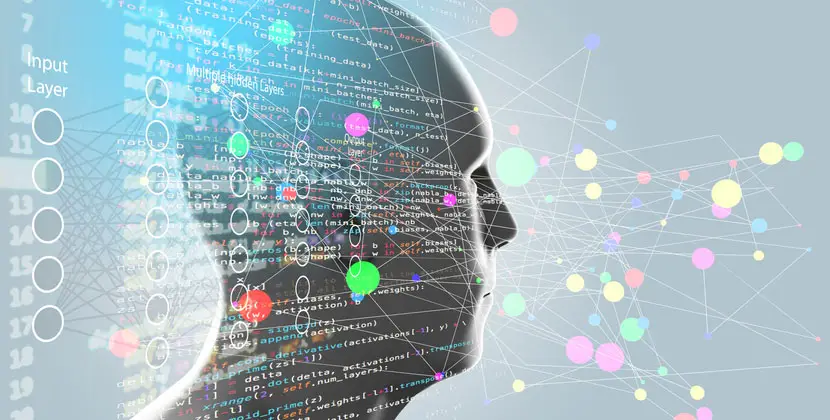Data science is a rapidly expanding topic that has grown in significance over the past few years. In order to draw conclusions from data, statistical and computational techniques are used. We shall examine the fundamentals of data science and its applications in this article.
What is Data Science?

An interdisciplinary area known as data science use statistical and computational techniques to draw conclusions from data. To analyze and interpret complex data sets, it integrates parts of statistics, mathematics, computer science, and domain-specific knowledge. Finding patterns, connections, and trends in data that may be utilized to guide decision-making is the aim of data science.
Applications of Data Science
Data science has a wide range of applications across various industries. Here are some examples:
- Healthcare: Data science can be used to analyze patient data to identify risk factors for diseases and develop personalized treatment plans.
- Finance: Data science can be used to detect fraudulent transactions and predict market trends.
- Marketing: Data science can be used to analyze customer behavior and preferences to develop targeted marketing campaigns.
- Transportation: Data science can be used to optimize transportation routes and reduce traffic congestion.
- Sports: Data science can be used to analyze player performance and develop game strategies.
The Data Science Process

The data science process involves several steps:
- Problem Definition: The first step in the data science process is to define the problem that needs to be solved. This involves identifying the business problem, defining the scope of the project, and setting goals.
- Data Collection: The next step is to collect the relevant data for analysis. This may involve collecting data from various sources such as databases, APIs, or web scraping.
- Data Cleaning: Once the data has been collected, it needs to be cleaned and preprocessed. This involves removing duplicates, handling missing values, and transforming the data into a format suitable for analysis.
- Exploratory Data Analysis: The next step is to explore the data using statistical methods and visualizations. This helps to identify patterns, relationships, and trends in the data.
- Model Building: Once the data has been explored, the next step is to build a predictive model using machine learning algorithms. This involves selecting an appropriate algorithm, training the model on the data, and evaluating its performance.
- Model Deployment: The final step is to deploy the model in a production environment where it can be used for decision-making.
How can I learn more about data science?
There are many online courses available for learning data science. Some of the best online courses for data science are available on Coursera, edX, and Udemy. These courses cover a wide range of topics, from the basics of data science to advanced machine learning techniques.
Here are some of the best online courses for data science:
- Applied Data Science with Python: This course is offered by the University of Michigan on Coursera. It covers the basics of Python programming and its applications in data science.
- Data Science MicroMasters: This course is offered by UC San Diego on edX. It covers the fundamentals of data science, including probability, statistics, and machine learning.
- Data Science Specialization: This course is offered by Johns Hopkins University on Coursera. It covers the basics of data science, including R programming, statistical inference, and machine learning.
- Statistics and Data Science MicroMasters: This course is offered by MIT on edX. It covers the fundamentals of statistics and data science, including probability theory, statistical inference, and regression analysis.
- IBM Data Science Professional Certificate: This course is offered by IBM on Coursera. It covers the basics of data science, including Python programming, data visualization, and machine learning.
These courses are a great way to learn more about data science and improve your skills in this field.
Are there any free resources for learning data science?
Yes, there are many free resources available online for learning data science. Some of the best free courses for data science are available on Coursera, edX, and Udemy. Here are some of the best free courses for data science:
- Applied Data Science with Python: This course is offered by the University of Michigan on Coursera. It covers the basics of Python programming and its applications in data science .
- Data Science MicroMasters: This course is offered by UC San Diego on edX. It covers the fundamentals of data science, including probability, statistics, and machine learning .
- Data Science Specialization: This course is offered by Johns Hopkins University on Coursera. It covers the basics of data science, including R programming, statistical inference, and machine learning .
- Statistics and Data Science MicroMasters: This course is offered by MIT on edX. It covers the fundamentals of statistics and data science, including probability theory, statistical inference, and regression analysis .
- IBM Data Science Professional Certificate: This course is offered by IBM on Coursera. It covers the basics of data science, including Python programming, data visualization, and machine learning .
These courses are a great way to learn more about data science and improve your skills in this field.

Conclusion
Data science is a quickly expanding field with several applications in many different industries. In order to draw conclusions from data, statistical and computational techniques are used. The problem definition, data collecting, data cleaning, exploratory data analysis, model construction, and model deployment are some of the processes in the data science process.
